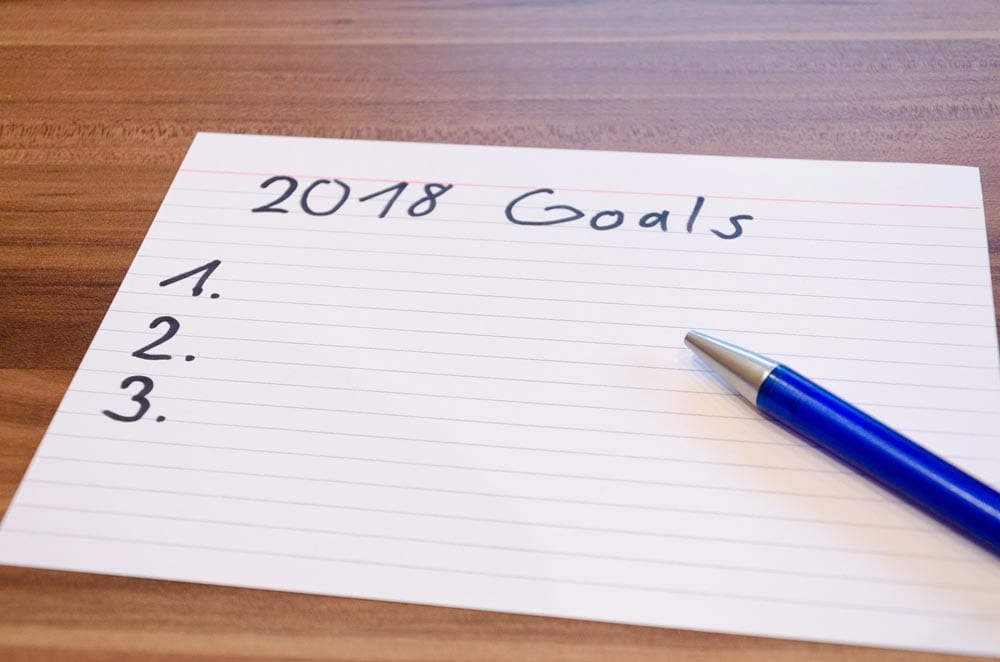
Year-on-year when January rolls around, I make promises to myself in the form of New Year’s resolutions from the standard “I’ll eat my five a day” and “I’ll join the gym” tropes to the more career-centric “I will build my portfolio each month” and “I will network more”. I’m not alone; according to Statistic Brain Research Institute, around 41 percent of Americans also usually make New Year’s resolutions.
While we set resolutions with the best intentions, changing life-long habits can prove to be difficult. Health.usnews.com tells us that a whopping 80 percent of New Year’s resolutions made by Americans fail within just a couple of months into the new year. If you really want to stick to them, it’s key to be passionate about what it is you want to achieve. Make a note detailing why you want to achieve it, when you want to achieve it by and set attainable steps that will ensure you reach your goal.
Changing habits
Humans are creatures of habit. Habits help us move through day-to-day tasks such as eating breakfast or traveling to school as if on autopilot. But some of our habits are decidedly “bad” or unhealthy for us (like smoking or eating junk food). Our habits tend to be deeply ingrained in our subconscious, so in order to break them (well, the negative ones, anyway) we need to become conscious of our habits and work to replace them.
Habits can occur because of repetitive behavior and according to the National Institutes of Health, “Habits can also develop when good or enjoyable events trigger the brain’s ‘reward’ centers.” This interesting little nugget explains why harmful habits such as smoking prove so difficult to change.
Break unhealthy habits by finding the trigger for it, dealing with it and offer yourself a substitute to replace the trigger with. If your New Year’s resolution is to eat less chocolate, then find the chocolate in your home, remove it and replace it with something healthful like fruits to satisfy any sweet cravings. Reward yourself with something other than food—such as a cinema trip—at the end of each successful month to give you motivation, positive reinforcement and incentive to carry on.
Goal-setting
Goal-setting plans often fail because the goal in itself is not specific enough. For example, if your goal is “to be healthier in 2018”, make it more specific by changing the phrasing to “stop drinking fizzy drinks by June” or something similar. Once you have a specific goal in mind, devise a plan—put useful, actionable steps in place to ensure that you achieve your end goal. In this scenario, you may begin by limiting fizzy drinks to just one glass per day in January. In February, this action would evolve into just two glasses per week and so on until you have successfully eliminated them.
Put pen to paper
Write your goals down in a journal. Research carried out by Dr Gail Matthews, a psychology professor at the Dominican University in California, found that those who write their goals by hand regularly are more likely to achieve their goals and dreams than those who do not—42 percent more likely, in fact. Plus, there’s nothing quite so cathartic as ticking items off of a to-do list, am I right? Gretchen Rubin, author of Better than Before (2015) says “People who monitor behavior tend to do a better job, even if they’re not actively trying to change.”
Reassess New Year’s resolutions regularly
A simple yet effective strategy that can help you keep on track with your resolutions is to systematically check in and reassess them. Do this as regularly as every month and you’ll able to pick up on and correct some behavior patterns that might be sabotaging your goals. This trick is also useful in figuring out whether your resolution is a little too ambitious so that you can tweak it as you see fit. Flexibility in this way means that, hopefully, you’ll reach the end of the year feeling more successful in reaching your goals and less guilty with altering your resolutions.
Do you have any tips to keep New Year’s resolutions? Let College News know!













-281x300.jpg)


